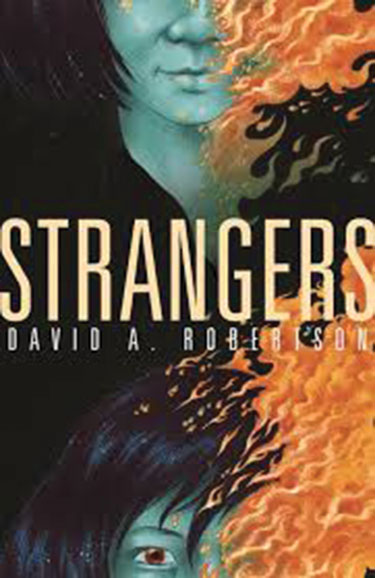
Strangers
David A. Robertson, 233 pgs, Highwater Press,
portageandmainpress.com/highwater-press, 19.95
In the inagugural edition of his young adult trilogy, David A. Robertson has crafted an appealing narrative despite its technical shortcomings. Strangers tells a homecoming story. where 17-year-old Cole is forced to return to Wounded Sky First Nation to face his past, his Indigeneity, and all the relationships he left behind when his family fled town when he was only seven years old. This premise is actually the novel’s main stumbling-point — Robertson’s characters seem to forget that he was only seven years old the last time he set foot in Wounded Sky. Thus, Cole faces social blame for abandoning his community, a slew of questions from “best friends” whom he hasn’t spoken with for 10 years, and least plausibly, a jealousy-filled bout of sexual tension with Eva — the girl he’d struck up love with in grade 3, only to leave hanging after a character-building disaster. “I promise I’ll never forgive you if you leave me,” were her words before he left, an illustrative example of the broken logistics running behind Strangers. Why would a seven-year-old say this? What choice did preadolescent Cole have to stay?
Most of the novel’s shortcomings stem from logistical faults like these. Strangers is full of bad exposition and awkward dialogue, but — and this is the issue — I actually really enjoyed the read.
Robertson takes this moody narrative following what he calls “the world’s first Indigenous superhero” about as seriously as any YA novel has a right to be taken, and the final product — predictable, flawed, and occasionally cringe-inducing — lands on some really sincere notes. I could list a hundred “better” novels than Strangers, but I won’t be looking forward to any of their sequels the way I’m anticipating Strangers II & III.
